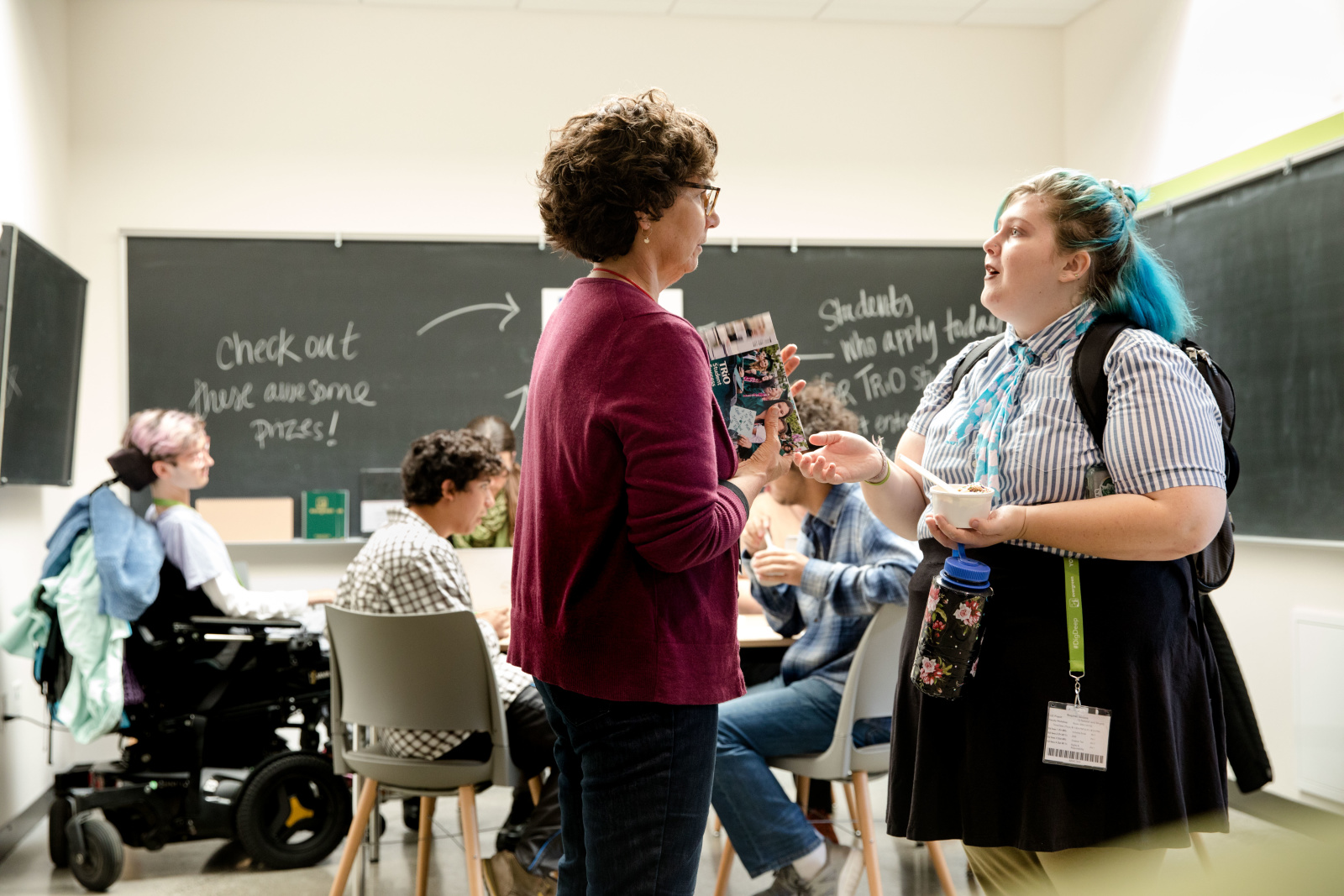Who We Are
Evergreen holds seven TRIO grants as part of our commitment to work with limited income, first-generation students and students with documented disabilities. TRIO is located on the second floor of Evans Hall.
TRIO Student Success and Disability Support
TRIO works to provide holistic support that empowers our students to persist and graduate at a greater rate than those who don’t use our services. Services are targeted to serve and assist students who are limited income, first-generation, and/or those with documented disabilities to achieve graduation with their bachelor’s degree. TRIO provides one-on-one support services from the day a student enters the program all the way through to graduation.
Apply and Learn More About TRIO
Upward Bound
As Evergreen's high school outreach program, Upward Bound's goals are as simple as they are daring - all of our students will graduate high school, attend college and graduate with a bachelor’s degree with minimal debt within six years. All of our students are either limited income or committed to being the first in their family to graduate from college and over 80% are in both categories.
